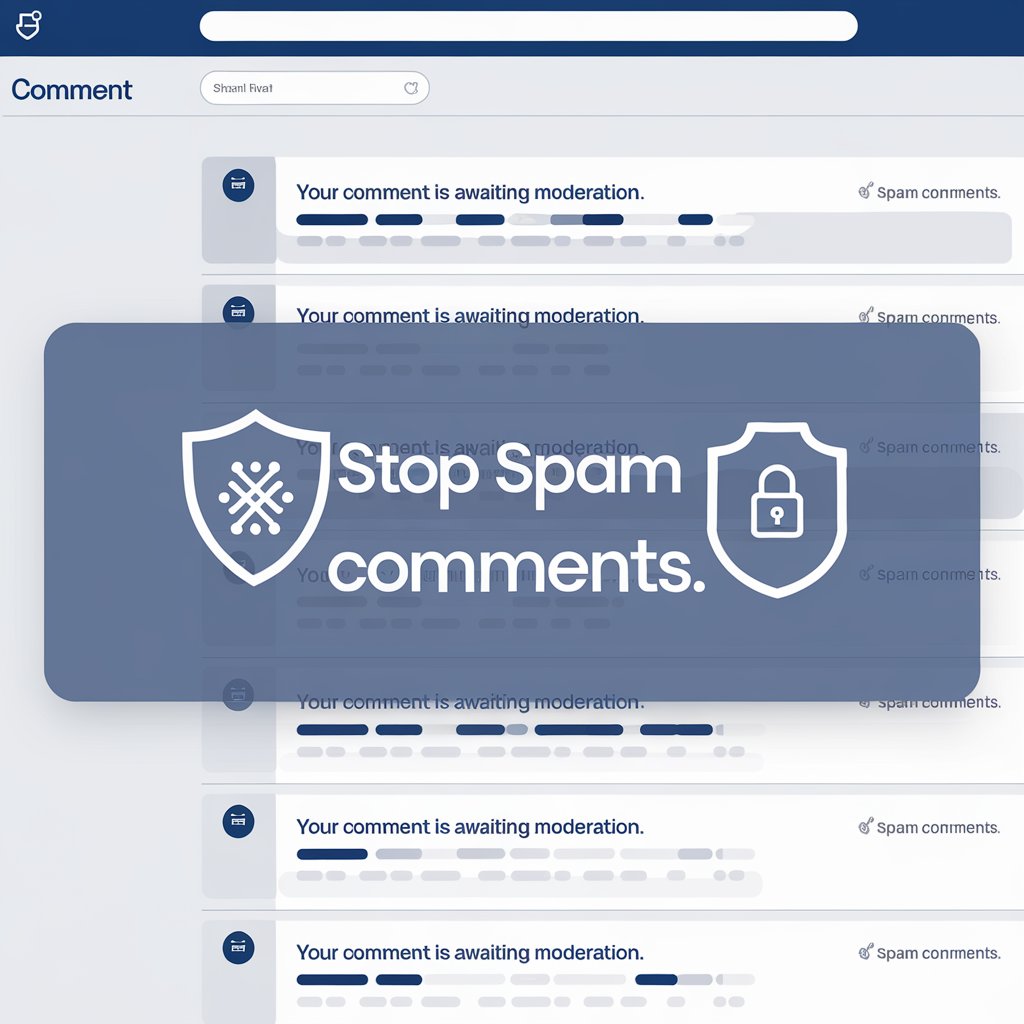Spam comments are a persistent nuisance for website owners, often disrupting user experience, damaging website security, and wasting valuable time. Understanding the nature of spam and how to effectively manage them is crucial to maintaining a healthy and professional website.
What Are Spam Comment?
Spam comments are unsolicited, irrelevant, or inappropriate messages posted on your website’s comment sections. These comments are often automated, generated by bots, and designed to promote dubious websites, products, or services. They can range from blatant advertisements to more subtle, but equally harmful, attempts to insert malicious links or inappropriate content, ultimately compromising your website security.
Why Are Spam Comments a Problem?
- Harmful to SEO: Search engines like Google penalize websites that are filled with spammy content. If your site is cluttered with spam comment containing low-quality or harmful links, it can hurt your search engine ranking.
- User Experience: Legitimate users may find spam comment off-putting, which can lead to a decline in user engagement. This can tarnish your brand’s image and credibility.
- Security Risks: Some spam comments contain links to malicious sites that can potentially harm visitors’ devices or steal their data, thereby compromising your website security.
- Resource Drain: Filtering and deleting spam comments manually can be time-consuming, especially as your website grows. This unnecessary workload diverts your attention from more important tasks.
Common Types of Spam Comments
- Link Spam: These comments include irrelevant links aiming to drive traffic to external websites, often of dubious quality or legality.
- Keyword Spam: These comments are filled with excessive keywords to manipulate search engine rankings.
- Trackback Spam: Some spammers use trackbacks (links to your website) to create backlinks from your site to theirs, which can harm your SEO if these links are low-quality.
- Malicious Spam: These contain harmful links that can infect your website with malware or lead your users to phishing sites, posing a significant threat to your website security.
Strategies to Combat Spam Comments
- Enable Comment Moderation: By manually approving each comment before it goes live, you can ensure that only legitimate comments are published. This is a key step to stop spam comments WordPress sites often face.
- Use CAPTCHA: Adding a CAPTCHA to your comment form can help distinguish between human users and bots, reducing automated spam comment.
- Anti-Spam Plugins for WordPress: WordPress users can take advantage of plugins like Akismet, Anti-Spam Bee, or WP-SpamShield. These WordPress spam protection tools automatically filter out spam comments before they even reach your moderation queue.
- Block IP Addresses: If you notice spam comments coming from specific IP addresses, blocking those IPs can prevent further spam from those sources.
- Limit Links in Comments: Restricting the number of links that can be included in a comment can reduce link spam. You can also set comments with links to require manual approval.
- Disable Trackbacks: If trackback spam is a recurring issue, consider disabling trackbacks altogether in your website’s settings.
- Close Comments on Older Posts: Spammers often target older posts where comment activity is lower. Closing comments on these posts can reduce spam significantly.
- Use Honeypots: Honeypots are invisible fields added to your comment forms. Since bots fill out all form fields, including the invisible ones, comments with filled honeypot fields can be automatically flagged as spam comments.
Conclusion
Spam comments are more than just an annoyance—they can seriously impact your website’s performance and website security. By understanding the nature of spam comments and implementing the right strategies, such as using anti-spam plugins for WordPress, you can maintain a cleaner, safer, and more user-friendly website. Regularly monitoring your site and updating your WordPress spam protection measures will help stop spam comments WordPress sites commonly deal with, ensuring your comment section remains a place for meaningful and legitimate user interaction.
Contact us today for expert support and ensure your site runs smoothly!


